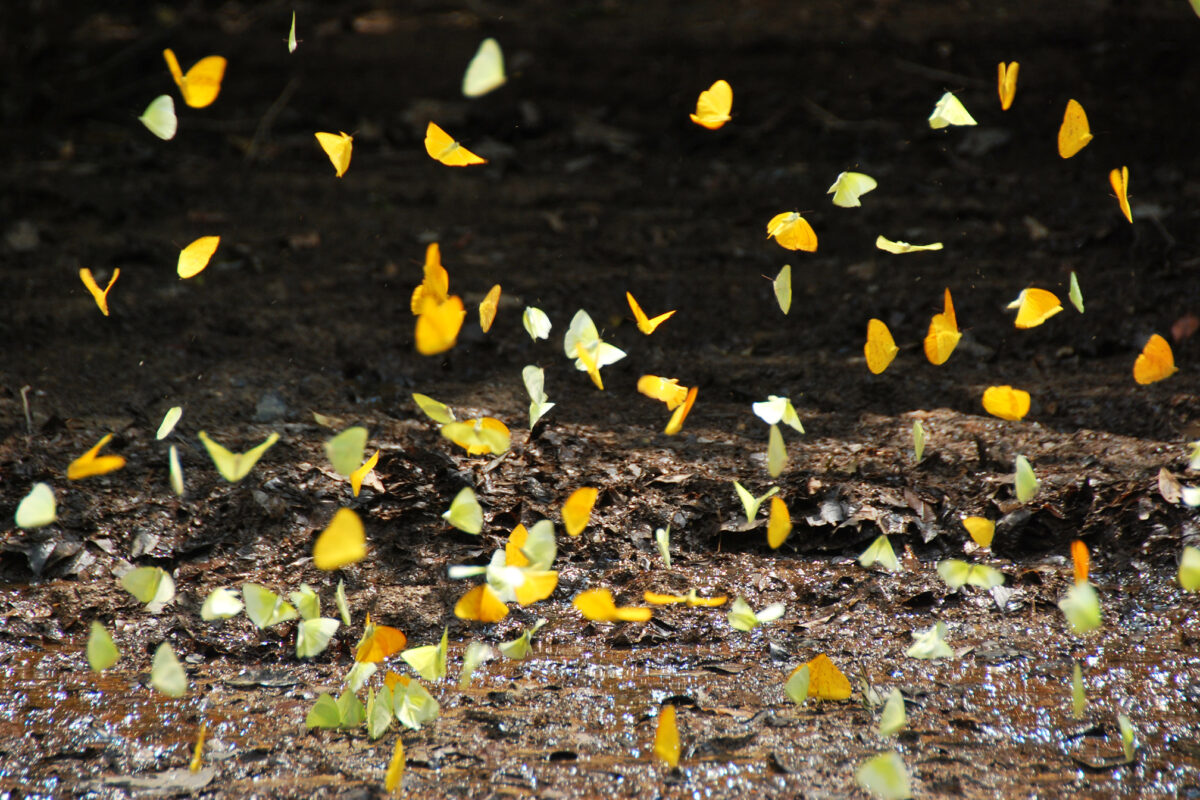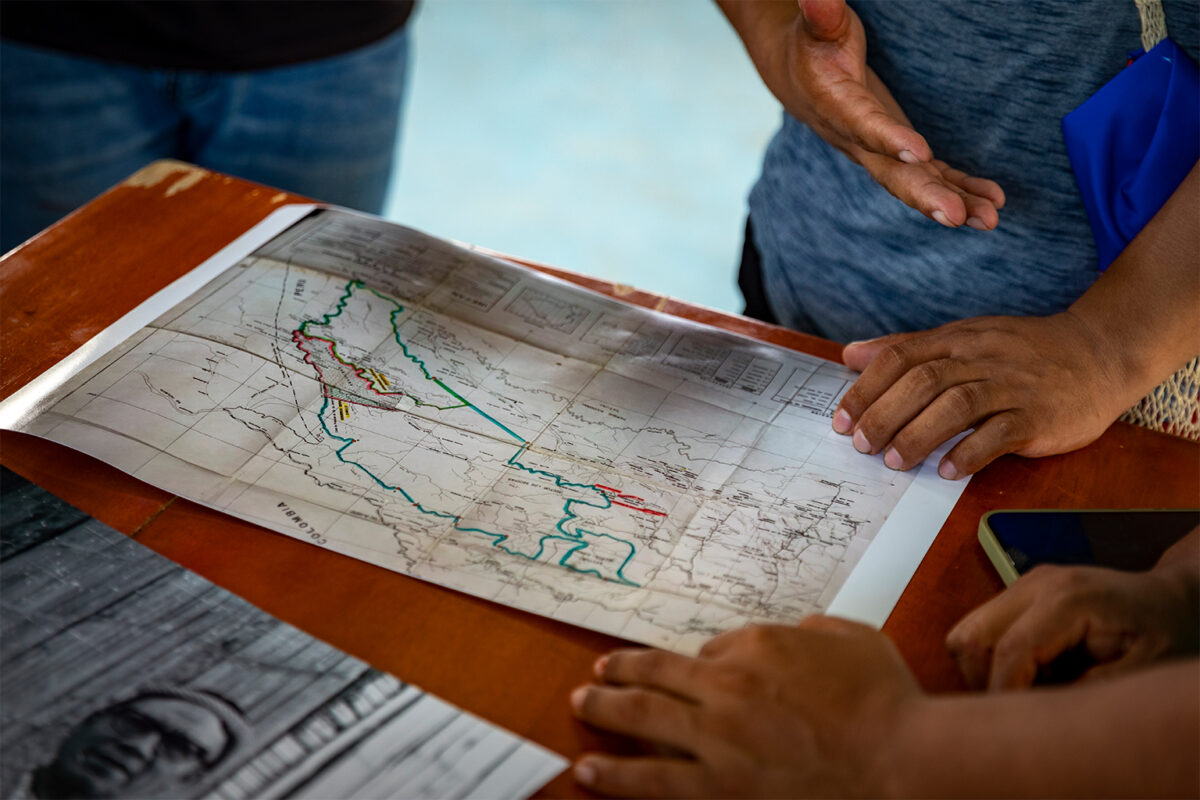- Over the past decade, thousands of African gray parrots have been exported from the Democratic Republic of Congo despite a ban on their international trade.
- The endangered species, Psittacus erithacus, was listed under Appendix I of CITES, the global wildlife trade convention, in 2016, which would have prohibited its commercial trade, but the DRC government resisted the move.
- Kinshasa was asked to conduct a comprehensive species’ population survey to justify continued trade of the birds, but to date still hasn’t carried one out.
- Meanwhile, the wholesale capture and export of birds has continued, and the DRC government has finally taken action to prohibit the capture and sale of this iconic species.
LUBUMBASHI, DRC — African gray parrot populations in the central and northern parts of the Democratic Republic of Congo are declining. Data collected by patrols carried out by the Lukuru Foundation in Lomami Luidjo, Maniema province, show a worrying decline of 36% in the numbers of Psittacus erithacus observed between 2016 and 2021. In August 2023, the DRC’s environment minister at the time, Eve Bazaïba, signed a decree placing the species under “total protection.”
The declining African gray parrot population correlates with increasing capture of the birds for the pet trade, which has been steadily rising since 2012. The increase has been attributed to weak control of international trade as well as corruption among officials responsible for regulating trade under CITES, the global wildlife trade convention.
 Gray parrots seized in an anti-trafficking operation at Lodja, DRC. Image courtesy of Adams Cassinga. |
African gray parrots were listed under CITES Appendix I in 2016, which should have imposed tight controls on commercial trade of the birds internationally. But the DRC government opposed the listing, expressing a reservation with support — since withdrawn — from Saudi Arabia and the United Arab Emirates, the two main markets for bird exports.
Kinshasa was supposed to survey its parrot population to provide evidence that exports could resume without causing harm, but to date, no such study has been conducted.
Jeff Mapilanga, CITES coordinator at the DRC’s Institute for the Conservation of Nature (ICCN), confirmed to Mongabay that the parrot trade was technically suspended pending the population survey.
But in practice, the widespread capture of wild parrots has continued.
Unsustainable capture of wild parrots
Intensive trapping takes place every year between June and August, when fruiting trees attract the birds, said Papy Matoandayi. Matoandayi trains others to climb trees to set traps for parrots, using glue extracted from lianas.
Emmanuel Boselo, an ecologist trained at the University of Kisangani, said parrot hunters sometimes also take chicks from their nests. He said parrot captures are driven by growing international demand. The birds fetch anywhere from $6 to $30 in Maniema, sell for $75 to $100 in the trafficking hub of Kisangani, and are advertised on online sales platforms for prices as high as $1,500 in a destination market like the UAE.
From capture hotspots, parrots are shipped by air or along rivers to Kinshasa, to be sold on overseas. Overcrowded into crates for long journeys on makeshift boats, or forced to endure poor ventilation in aircraft holds, many birds don’t survive the trip.
As many as 70% of captured birds die en route to major transit hubs, ICCN and Lukuru Foundation experts say — suggesting that if an estimated 86,000 birds were shipped out of Kisangani between 2016 and 2022, well over a quarter of a million more gray parrots were captured but never made it.
Tracking these shipments can be difficult, even those conveyed by air, where formal cargo manifests should offer better surveillance. When Mongabay consulted the register at an airfield register in Sankuru province, it recorded no details other than the senders’ first and last names.
“Punitive actions against traffickers are weak,” said Mpo Diamba from the NGO Action for the Promotion of Indigenous Peoples and Local Communities for the Promotion of Natural Resources (APPACOL-RN) in 2024.

DRC authorities act against trafficking
In early July 2025, provincial authorities in Maniema seized 35 illegally hunted parrots on Kituhu Island. The birds were handed over to Kindu Zoo for rehabilitation before being released back into the wild.
Maniema’s provincial capital, Kindu, and Kisangani, a major city in the northern province of Tshopo, have become major hubs for trafficking of African gray parrots over the past decade. Traffickers have also been active around protected areas in Lualaba, Tshuapa and Sankuru provinces.
According to research presented at a 2023 conference in Kigali, Rwanda, by Lukuru Foundation scientific director John Hart, also on behalf of the ICCN, between 2017 and 2022, some 68,000 gray parrots were transported from Kisangani to Kinshasa for onward shipment overseas. Around 50,000 of these birds were identified as coming from Maniema.
This unsustainable trade has shown little sign of slackening since: In March 2024, the interim governor of Maniema signed an export authorization for 400 gray parrots.
According to environmental activist Jean-Claude Sefu, a member of the NGO SOCEARUCO, until recently, traffickers operated with the blessing of local authorities. “They bought the parrots at rock-bottom prices. Sometimes they went into the forest themselves and chose the species. It was a catastrophic situation.”
Provincial authorities eventually acted to curb this unsustainable trade. In March 2025, Tshopo province banned the capture and trade of African gray parrots. The ICCN has set up a parrot conservation center at the zoo in the provincial captial, said Gentil Kisangani, the conservation authority’s provincial director. By the end of August, the zoo’s aviary had received 100 gray parrots seized from illegal traffickers.
The center is underresourced, particularly when it comes to rescuing endangered birds, and several birds have died. “We face a challenge collaborating with certain government departments that don’t understand the extent of the problem. We are still raising awareness, and they will understand eventually.”
In late July, in a welcome move that points to this growing awareness, the national environment minister signed a decree banning the capture, sale, transport and export of parrots — except in the case of express authorization from the ministry for noncommercial purposes, such as research or domestication.
Saïbe Kabila in Kisangani contributed to this report.
A version of this story was first published here in French on Sept. 2, 2025.
Banner image: African gray parrot. Image by Robert01 via Wikimedia (CC BY-SA 3.0).
Ugandan court hands Congolese parrot trafficker seven-year jail sentence
Study shines light, and raises alarm, over online trade of West African birds
FEEDBACK: Use this form to send a message to the author of this post. If you want to post a public comment, you can do that at the bottom of the page.














